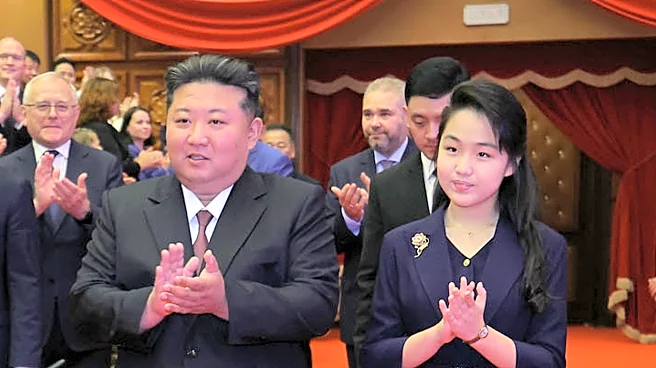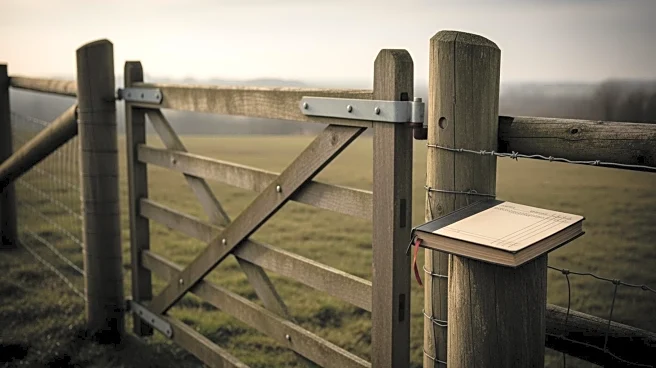What is the story about?
What's Happening?
The U.S. Conference of Catholic Bishops (USCCB) has expressed support for the initial phase of President Trump's 20-point peace plan aimed at resolving the conflict between Israel and Hamas. This phase includes the release of remaining Israeli hostages and the withdrawal of Israeli troops to a mutually agreed line. Bishop A. Elias Zaidan, chairman of the USCCB’s Committee on International Justice and Peace, praised the efforts of the United States and its partners in initiating this process, which he hopes will lead to the end of the war in Gaza. Meanwhile, the federal government shutdown continues as Congress remains deadlocked over funding legislation, affecting various government services and personnel.
Why It's Important?
The commencement of the peace plan is a significant step towards resolving the long-standing conflict in Gaza, which has resulted in substantial civilian casualties and displacement. The involvement of the USCCB highlights the importance of humanitarian efforts in the peace process, emphasizing the need for rebuilding and prosperity in Gaza. Concurrently, the government shutdown poses challenges for federal workers and military personnel, with potential delays in pay and services. The shutdown also impacts social programs like WIC, which are crucial for vulnerable populations. The resolution of these issues is vital for maintaining stability and support for affected communities.
What's Next?
As the peace process progresses, international partners are urged to prioritize humanitarian assistance and reconstruction efforts in Gaza. The USCCB calls for continued support to ensure the prosperity of the Gazan people. In the U.S., Congress faces pressure to pass the 'Pay Our Troops Act of 2026' to ensure military personnel receive pay during the shutdown. The ongoing deadlock in Congress requires urgent resolution to prevent further disruptions to government services and support for vulnerable populations.
Beyond the Headlines
The peace plan's success could reshape geopolitical dynamics in the Middle East, potentially leading to broader regional stability. The USCCB's involvement underscores the role of religious organizations in advocating for peace and humanitarian aid. The government shutdown highlights the fragility of political processes in the U.S., with implications for public trust and governance. The situation calls for a reevaluation of legislative priorities to prevent future shutdowns and ensure continuous support for essential services.
















